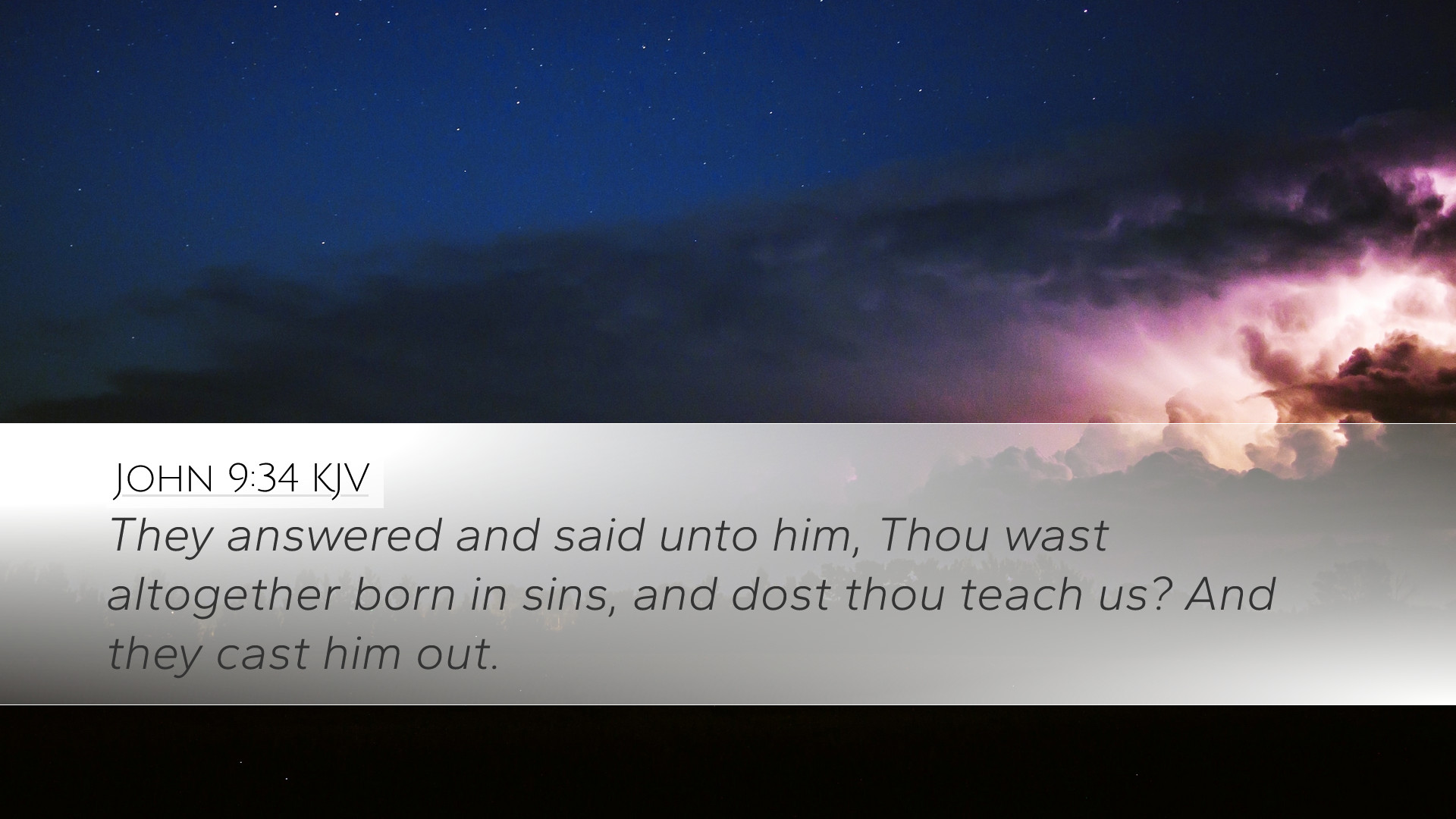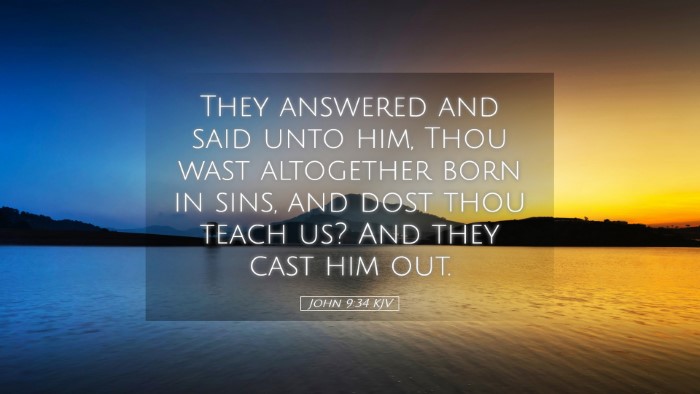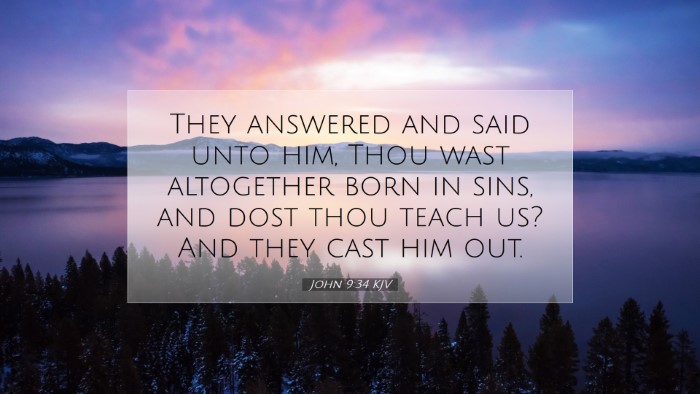Commentary on John 9:34
John 9:34 states:
"They answered and said unto him, Thou wast altogether born in sins, and dost thou teach us? And they cast him out."
Contextual Analysis
This verse occurs within the broader narrative of Jesus' healing of a man born blind. The Pharisees' response encapsulates their hostile attitude towards Jesus and His disciples, revealing both their spiritual blindness and their rigid adherence to tradition.
Theological Insights
- Spiritual Blindness: The Pharisees, despite their piety, exhibit profound spiritual blindness. According to Matthew Henry, they are representative of those who, unable to accept the truth, resort to personal attacks to hinder its dissemination.
- Born in Sins: The phrase "born in sins" indicates that the Pharisees consider the man’s suffering as a direct result of sin. Albert Barnes emphasizes that this reflects the prevailing rabbinical view that physical ailments were often punishments for sin.
- Authority and Ignorance: The challenge posed by the healed man—"dost thou teach us?"—illustrates the tension between learned authority and genuine understanding. Adam Clarke remarks that ignorance often masquerades as authority, leading to wrongful judgments against those who possess spiritual insight.
Historical Context
During the time of Christ, the Pharisees wielded significant religious authority in Judea. Their legalistic interpretations of the Law often led them to exclude those deemed unworthy. The rejection of the healed man who simply testified about his experience showcases the challenge Jesus posed to the established religious order.
Literary Analysis
John's Gospel is known for its depth and theological richness. In this passage, the dialogue structure highlights the contrast between the man's clarity regarding his healing and the Pharisees' confusion and obstinacy. Albert Barnes notes that the narrative format invites readers to reflect on the nature of faith and spiritual insight through the eyes of the healed man.
Applications for Modern Readers
- Faithfulness in Persecution: The healed man's experience serves as an encouragement for believers facing opposition for their faith. As noted in Matthew Henry, he remained steadfast in his testimony despite societal rejection.
- Understanding of Sin: The idea that suffering equates to personal sin is still prevalent today. Adam Clarke encourages a more nuanced understanding, suggesting that suffering can be a means of divine testing or a precursor to greater revelation.
- Encouragement to Speak Truth: Believers are called to share their experiences of God's work despite potential backlash, reflecting the healed man’s boldness in speaking out.
Conclusion
John 9:34 encapsulates the struggle between true spiritual enlightenment and the self-imposed blindness of religious authority. The man once blind symbolizes the transformative power of Christ, while the Pharisees exemplify the dangers of dogmatism. For pastors and theologians, this passage serves as a profound reminder of the need to embrace humility, seek true understanding, and reflect the love of Christ in addressing the complexities of sin, suffering, and authority.


